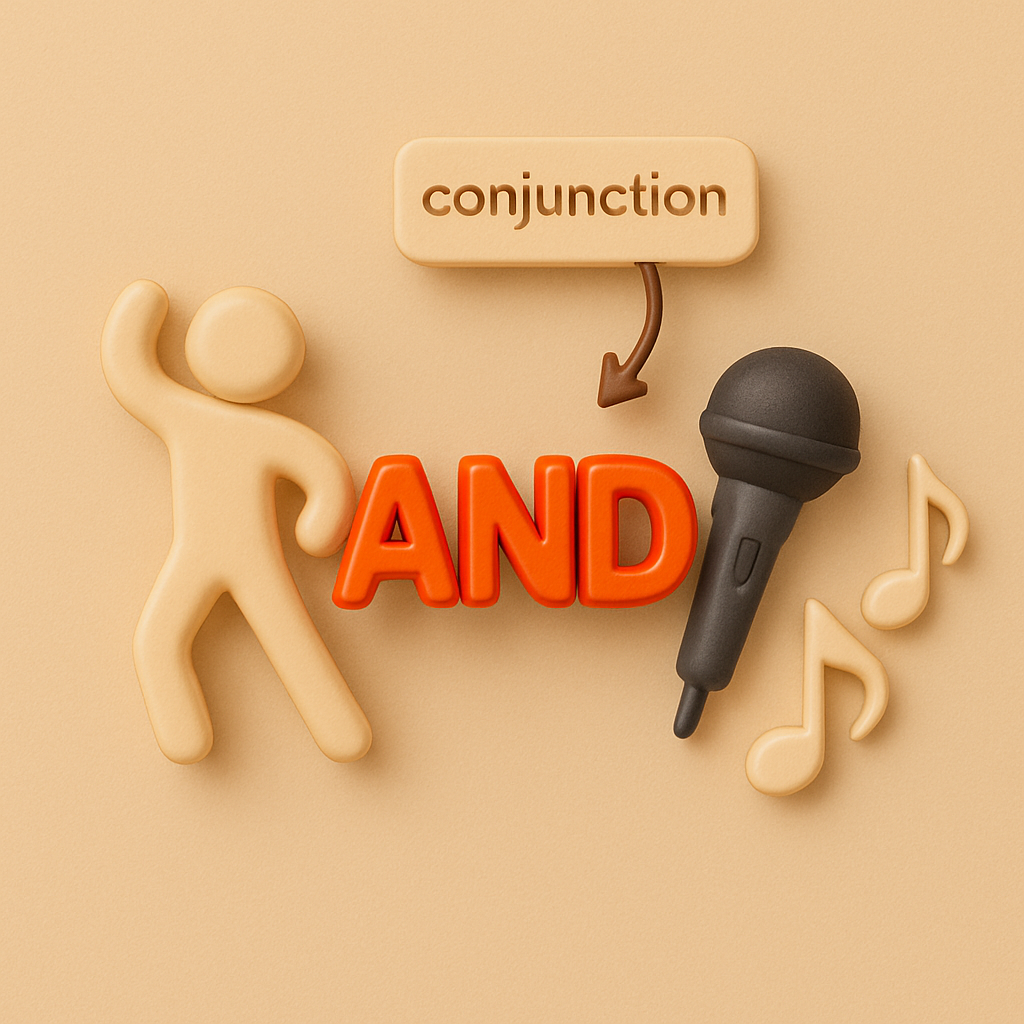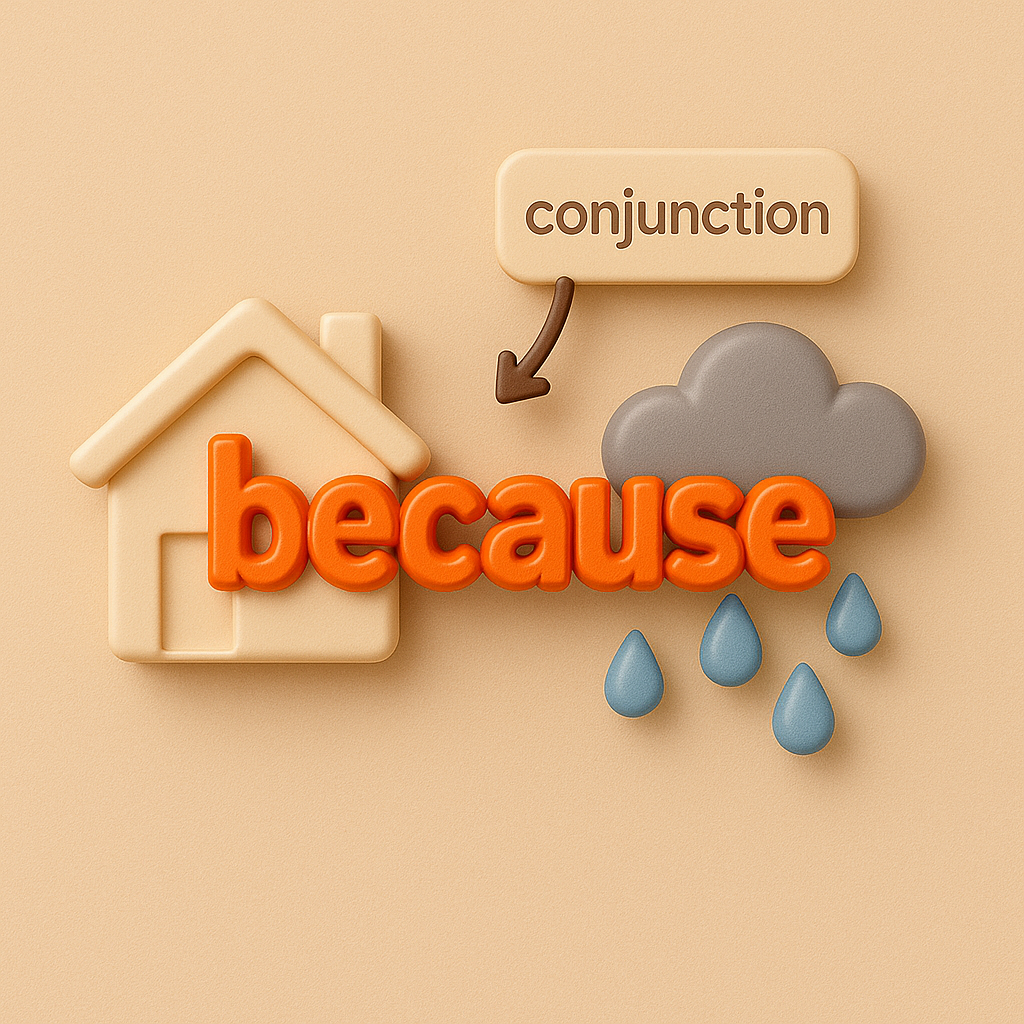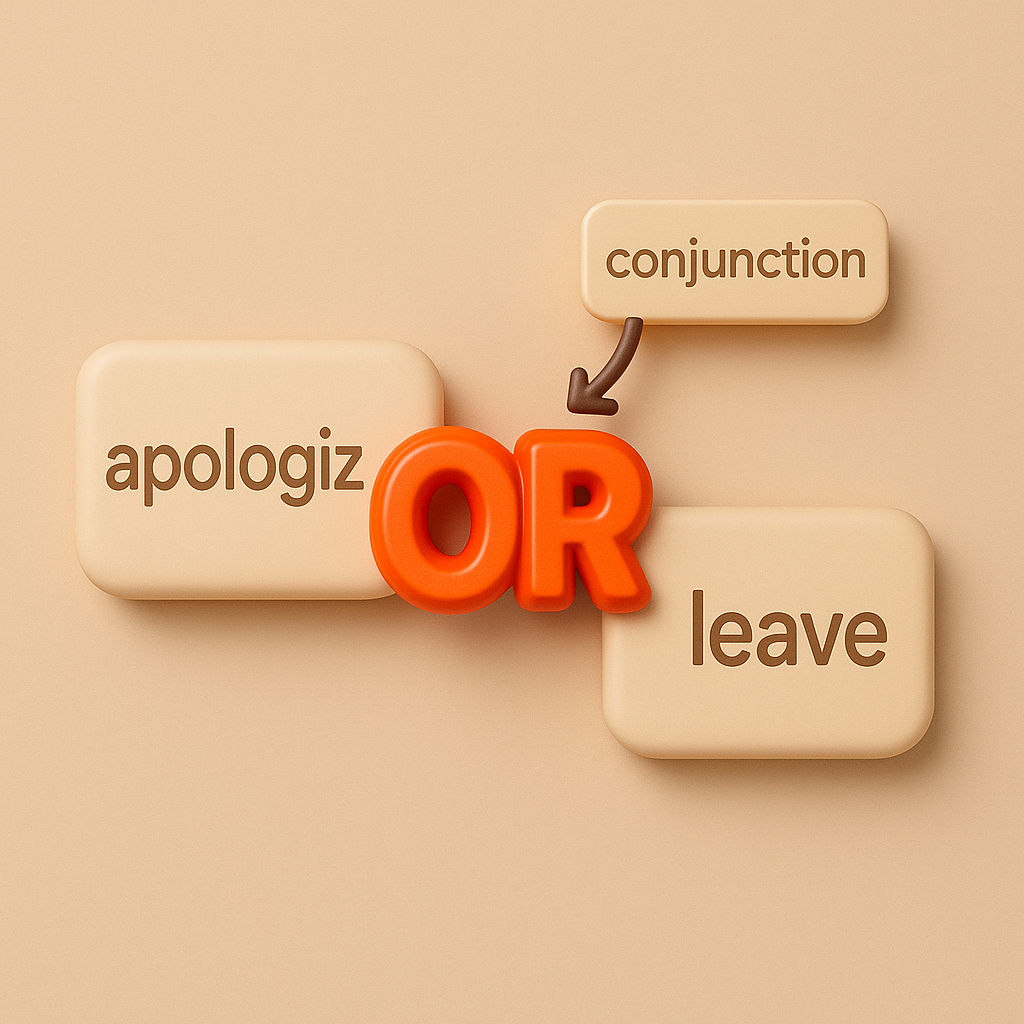Conjunction
Definition
The noun "conjunction" refers to (1) a part of speech that connects words, phrases, clauses, or sentences; (2) a word that introduces a subordinate clause and shows its relationship to the main clause; and (3) one of a pair of words used together to link parallel elements (correlative conjunction).
Parts of Speech
- Noun
Pronunciation
American English
- IPA: /kənˈdʒʌŋk.ʃən/
- Respelling: kuhn-JUNGK-shuhn
British English
- IPA: /kənˈdʒʌŋk(ʃ)ən/
- Respelling: kun-JUNK-shuhn
Etymology
From Latin coniunctiō “joining together,” from coniungere “to join together” (con- “together” + iungere “to join”). Entered English in the late 14th century.
Derivatives
- Conjunctional (adjective)
- Conjunctive (adjective)
- Conjunctively (adverb)
Synonyms
- Connector
- Linking word
- Coordinator
Antonyms
- Disjunction
- Separation
Usage
"Conjunctions" appear in grammar to join elements. Examples: "She bought apples and oranges," "He left early because he was tired," and "Either you come with us or you stay behind."
Related Terms
- Preposition: Shows relationship between noun/pronoun and other words.
- Clause: A group of words containing a subject and predicate.
- Coordinate clause: A clause linked by a coordinating conjunction.
- Subordinate clause: A dependent clause introduced by a subordinating conjunction.
Detailed Definitions
Noun
- A word that connects words, phrases, clauses, or sentences: Joins elements of equal grammatical rank.
- Example: "They danced and sang all night."
- A word introducing a subordinate clause: Links a dependent clause to a main clause and shows cause, time, condition, etc.
- Example: "She stayed home because it was raining."
- One of a pair of words used together to correlate elements: Presents alternatives or balances.
- Example: "Either you apologize or you leave."
conjunction








